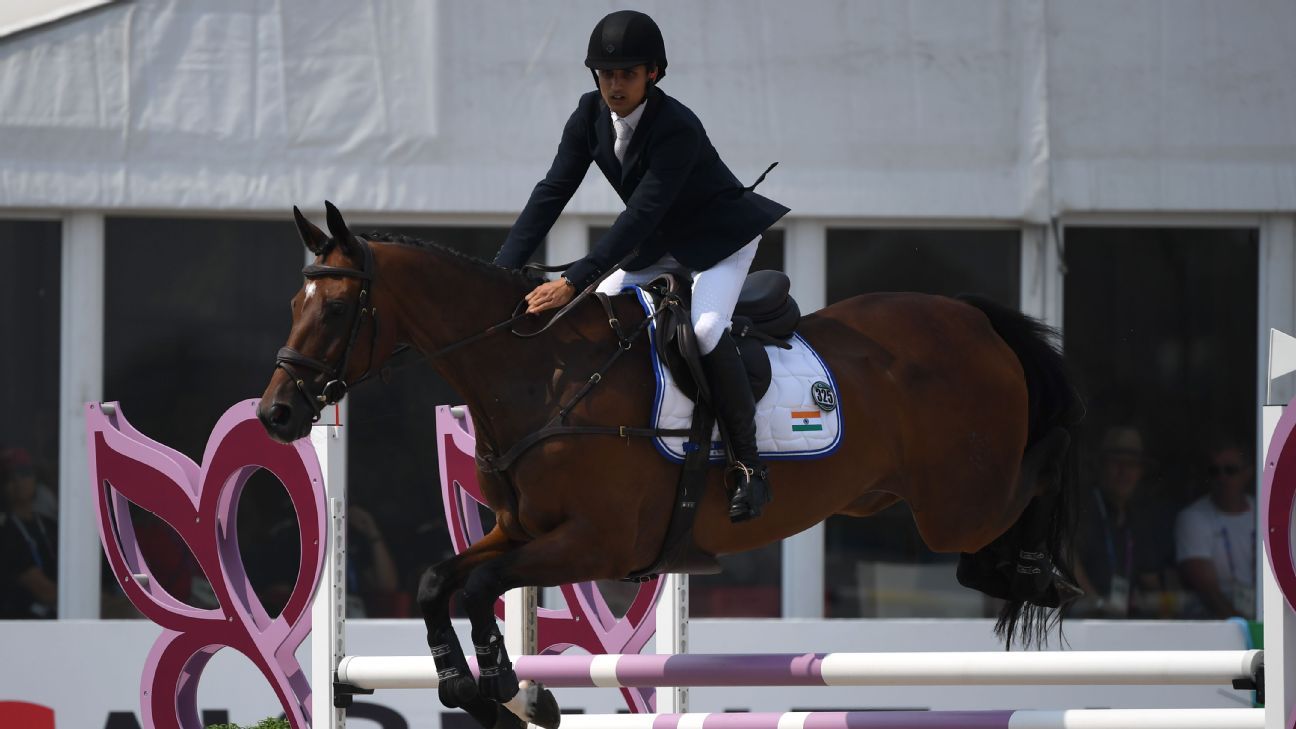Fouaad Mirza is meticulously checking temperatures twice a day and looking out for signs of cough and runny nose. The Olympic-bound Indian equestrian is following these close monitoring practices on his mare, Dajara 4, currently serving a 14-day quarantine period in Germany following the outbreak of Equine Herpes Virus (EHV-1).
The International Federation for Equestrian Sports (FEI) has cancelled international events scheduled to take place in ten countries across continental Europe until March 28.
With cases piling, Mirza, who was in Montelibretti, Italy for a competition, promptly hit the road with Dajara 4 and returned to his training base in the German hamlet of Bergedorf. Dajara 4 has been housed in a separate stable around five kilometres away from the main stable, with Mirza tending to her. To ensure that she isn’t completely cut off socially, another of the 28-year-old rider’s favourite mounts, Touching Wood, has been brought to keep her company.
“I took turns with a friend to drive a trailer for roughly 1800 kms without rest,” Mirza tells ESPN. “Usually we’d divide the journey into two parts and stay overnight in Austria but we couldn’t be sure if the stables were contaminated on the way. Once we got here, I figured it would be good to have Touching Wood, a friend of hers around through the quarantine.”
Hundreds of horses have already been infected by the rapidly evolving and contagious neurological strain of EHV-1, which has been traced back to a FEI jumping competition in Valencia, Spain where more than 750 horses were in attendance, and led to four on-site deaths. While the virus is known to occur sporadically, the world body described this instance as, “perhaps the most serious EHV-1 outbreak in Europe in decades”. Mirza’s father Hasneyn, an equine specialist, has been in regular touch with the rider, dispatching copious notes and biosecurity instructions to keep Dajara 4 healthy and out of harm’s way as the virus bellows through Europe. The virus can be transferred through the air from horse to horse up to distances of five metres through snorting, coughing or close contact.
“It’s reassuring to just have my father’s voice at the other end, telling me what to do and what to watch out for,” says Mirza. “Sharing buckets, halters, leads, bridles or tack is a complete no-no. It could lead to cross contamination. I’m getting her thermal scanned twice a day. She doesn’t have any symptoms so far. Where we’ve travelled from in Italy was a clear zone with no cases so it’s highly unlikely that she would have contracted it. Still, we’re taking all necessary precautions. We got her tested on arrival and she’ll have another test on Day 14 of her quarantine. Right now even I’m not visiting the main stable where the other horses are and I’m showering and changing as often as possible.” Affected horses could suffer from respiratory or neurological complications, leading to abortion in pregnant mares and death in young foals.
There are some vaccines available for protection against the respiratory form of the disease, and to prevent abortion. However, keeping her recent punishing road travel in mind, Mirza is holding off on an EHV vaccine for Dajara 4 for now. “The stress of close to a day’s nonstop travel may have taken a toll on her immune system so I want to wait and see how she is doing before getting her vaccinated,” says Mirza.
At the start of the pandemic, Mirza had the choice to return home to Bengaluru or stay back with his horses in the tiny, sparsely-populated German village, surrounded by marshes, forests and fields. He couldn’t bear to part with his companions and elected to remain with them. “Thankfully in the animal husbandry field we went about our daily lives without much of a crushing impact of the coronavirus. We did our normal exercise routines. Of course, we stuck to strict schedules to ensure there weren’t too many people at the same time in the stable. It’s funny how last year this time was the height of pandemic and this year it’s the horses’ turn. Almost like you could write in a movie,” he says.
Though he has already technically won an Olympic quota, topping the South-East Asia and Oceania zonal standings, Mirza still has to complete a Minimum Eligibility Requirement (MER) in a Concours Complet International (CCI) four-star long format. He is hoping the virus blows over in time for the events he has in mind in April and May in Poland. “Though it’s considered a formality, it’s still a marathon,” he says. “I’ll be happy only when I know I’ve ticked the required boxes. I don’t want to rejoice too early. In my mind, I’m still not there yet.”
